2023 annual review

Previous years: 2011, 2012, 2015, 2016, 2019, 2020, 2022.
- What went well this year?
- What didn’t go so well this year?
- What did I learn?
- What am I working toward?
1) What went well this year?
I read a lot of really good books
My goal was a modest 26 books, which I blew past before summer, ending up with a total of 67 read books at the end of the year. Looking at a slightly more useful metric, I clocked in at 12'621 pages, which is my best year since I started tracking in 2015.
One interesting thing I've discovered lately is that I relish diving deep into a topic by reading a handful of books on it. Going forward, this is how I want to approach my reading — pick a topic, curate the 3–6 top books for that topic, and then read through them all before processing the whole topic.
This year I dove into and learned a lot about writing books, podcasting, personal finance, ancient philosophy, and burnout (more on that later).
Here are some of my favourite reads from 2023, in no particular order: Born a Crime, Essentialism, Frankenstein, Getting Things Done, Leonardo da Vinci, Psychology of Money, Rich Dad Poor Dad, The Trial, This is Vegan Propaganda.
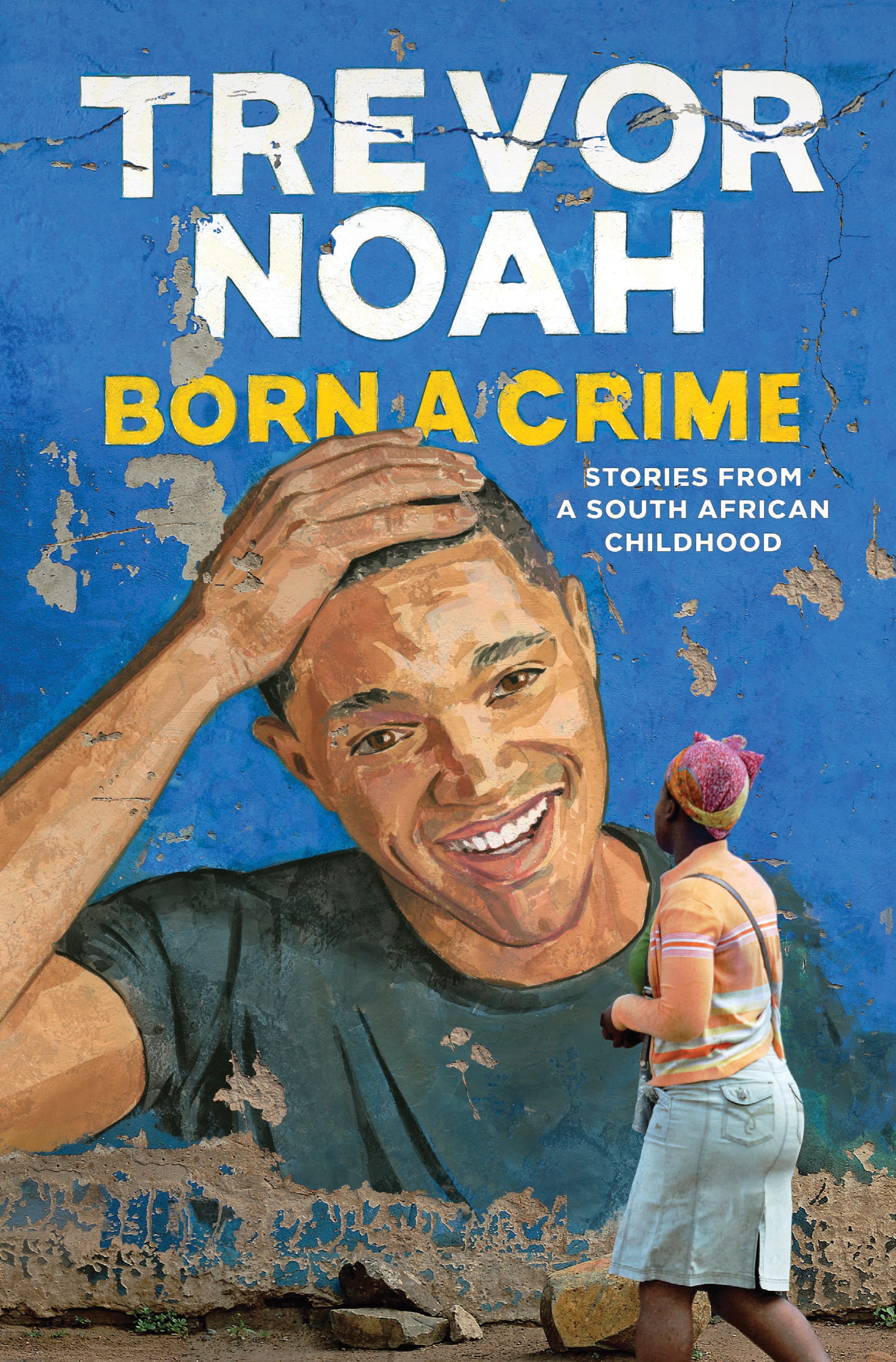
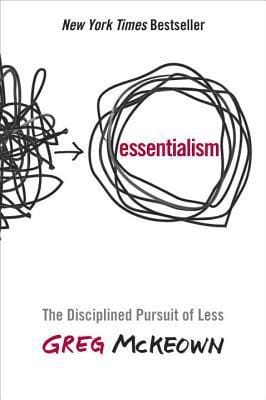

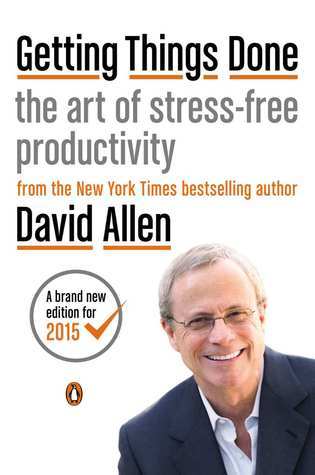

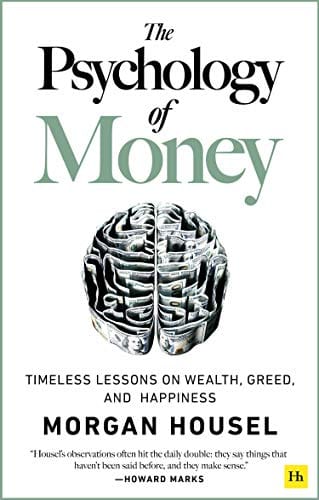
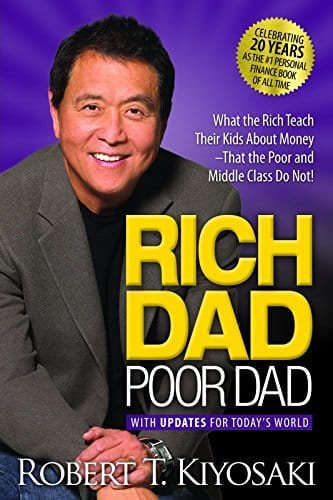

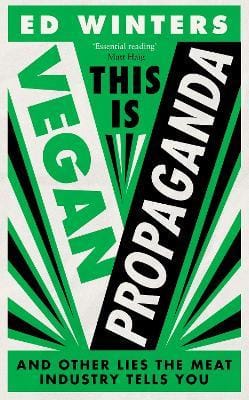
I grew my family's finances
My goal is for us to be able to retire at age 55 and we're on a great trajectory of making this a reality. Two good salaries and sizeable monthly investments definitely help but our main tactic is actually controlling our spendings, which we've managed, if not great at least a lot better, this year.
Despite a dropping housing market we managed to increase our net worth by +8.3%.
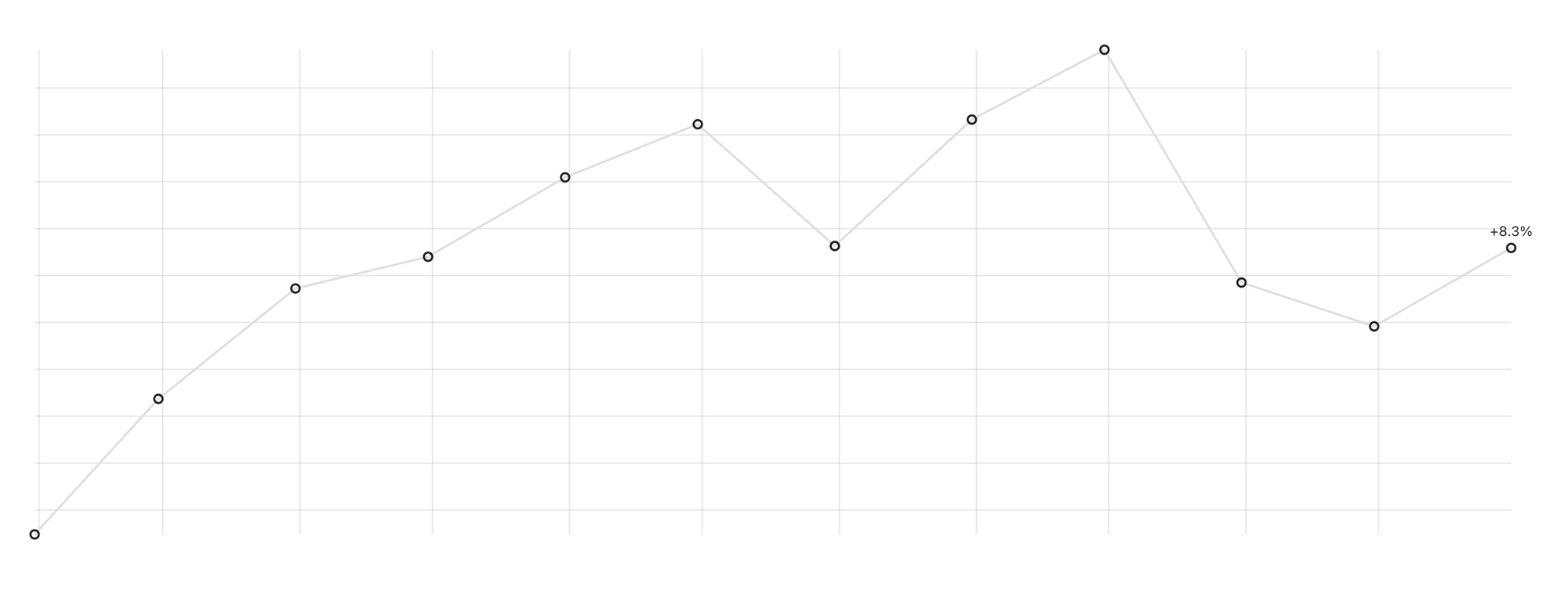
Mainly that was due to our investments appreciating by +17.25%.

I completed my second year as manager
It was another instructive year and I learned even more about how to manage a diverse group of people (plus many more ways how not to do it) to achieve specific outcomes. My managerial toolbox has grown substantially and I feel both comfortable and effective in my role.
My main take-aways in this role from last year are:
- As a manager, your job is not to solve problems but to enable others to do so. You're still responsible for the solution (or lack thereof) but it makes such a difference if you can avoid getting hands-on and instead develop the skills needed to delegate.
- A team is only a collection of individuals and everyone is different from everyone else. This means you have to really see everyone you're working with and consider their unique strengths and weaknesses, personal and professional context, and desires and aversions.
- The less you say, the more clearly you communicate. Not in terms of number of words or minute of discussion — that seems to never be enough — but in ideas and directions. The subsequent implication is that you need to analyze the situation carefully, so as to pick the absolutely most important matters to focus on right now.
- Problems are more easily solved the sooner they are addressed. If you let issues linger, they'll get infested and become orders of magnitude harder to deal with. It sucks, having to be the stickler for upholding high standards or being the one having uncomfortable talks, but it'll suck even more if you don't and it'll still be your problem.
- Sometimes, you're the most effective if you just shut up and get out of the way.
I upgraded my productivity system
I have an extensive and meticulous system for organizing my life, without which everything would become a complete mess. This system has taken shape over the years, with me taking inspiration from many different sources and experimenting to see what fits me.
After finally reading Getting Things Done in 2023, so many gaps in my system were filled and everything came together in one, unison philosophy of … getting things done.
I don't "do" GTD exactly as prescribed by David Allen (more on my own variant in a future post) but with its additions I now feel I am fully in control of where I spend my time. I still can't do everything I would want to but at least now I know for sure that the things I leave out are less important than the things I focus on. It's such a great feeling of being on top of everything and continuously moving the needle by working on what's actually important.
Most of the time, anyway. :)
I organized a bunch of meetups
At the first half of the year, together with a few colleagues, I put together an international conference on the intersection of music and technology. We had a lot of great speakers and many super interesting discussions ensued.
It was a lot of stress, putting everything together, but I realized I really enjoy bringing people together and being part of exchanging experiences. As well as being on stage myself!
This escapade coincided with me making a new friend in Mehdi Mokhtari and together we formed Tech Leaders Guild, a community of CTOs, tech leads, engineering managers, and other leaders in the IT world.
We organized a bunch of panel discussions, breakfasts, and after-works. It was a success but, sadly, fate conspired against us. Mehdi unfortunately had to leave Sweden and I had to seriously reevaluate the many projects, initiatives, and activities I was involved with.
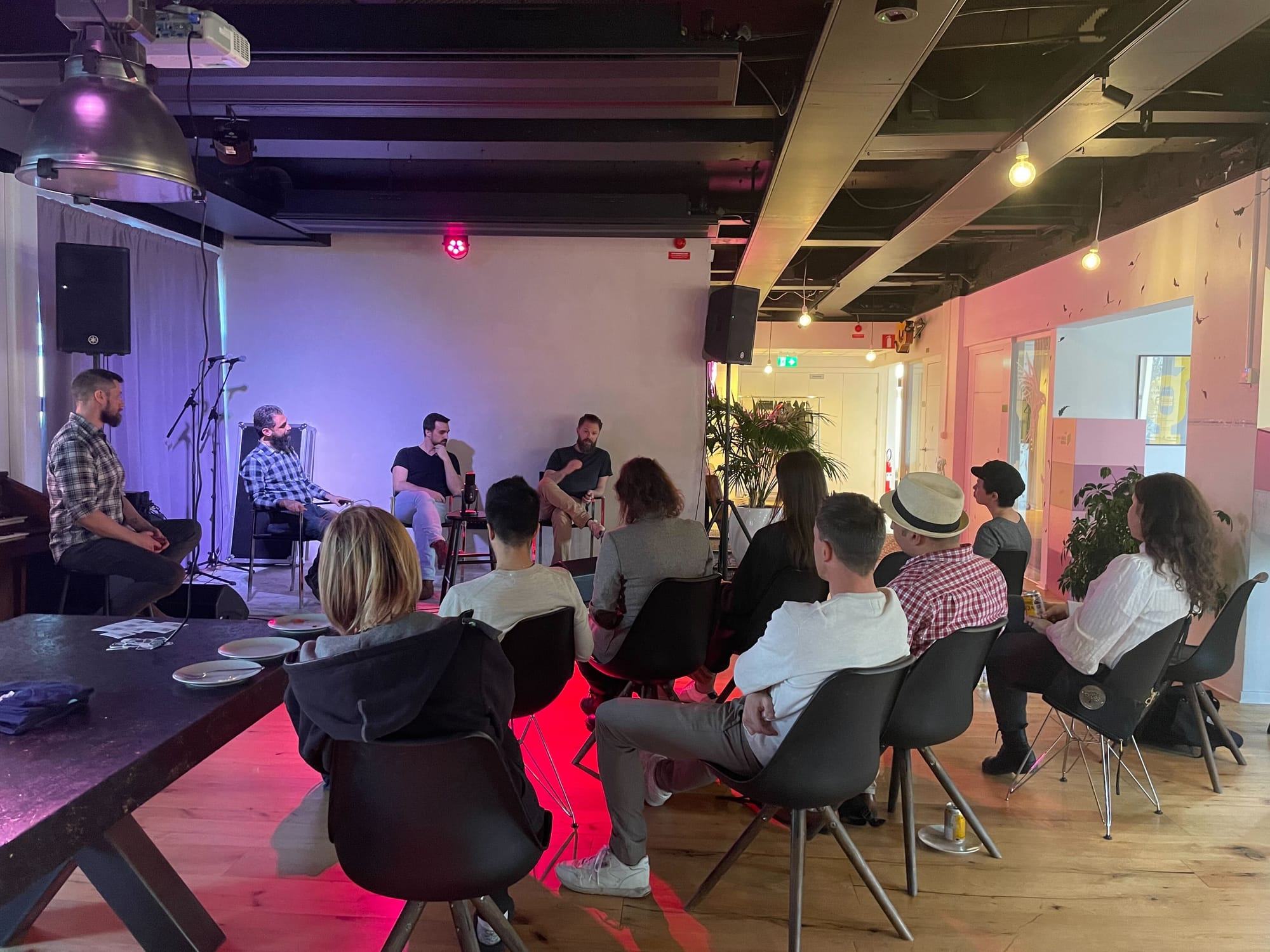
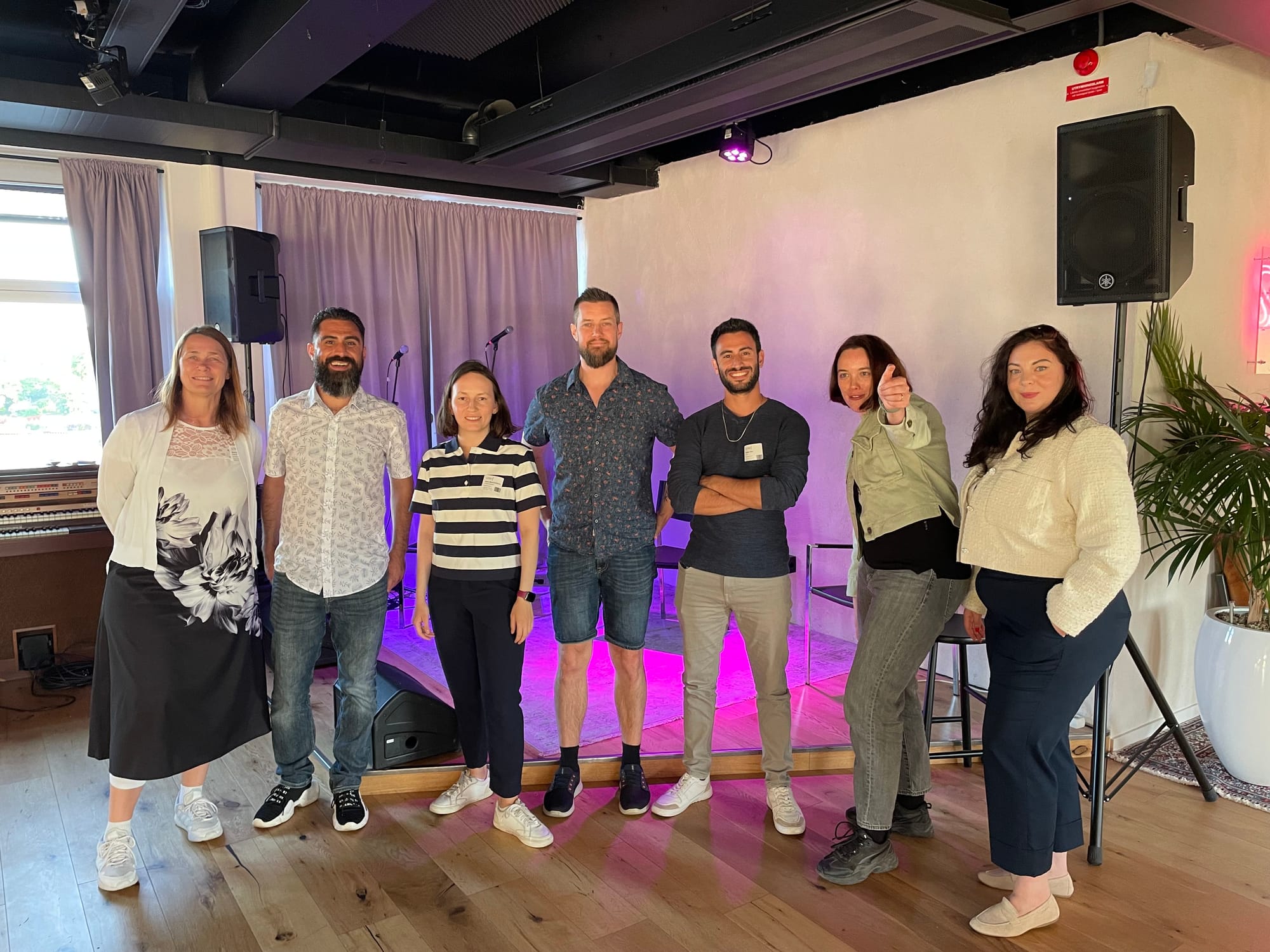
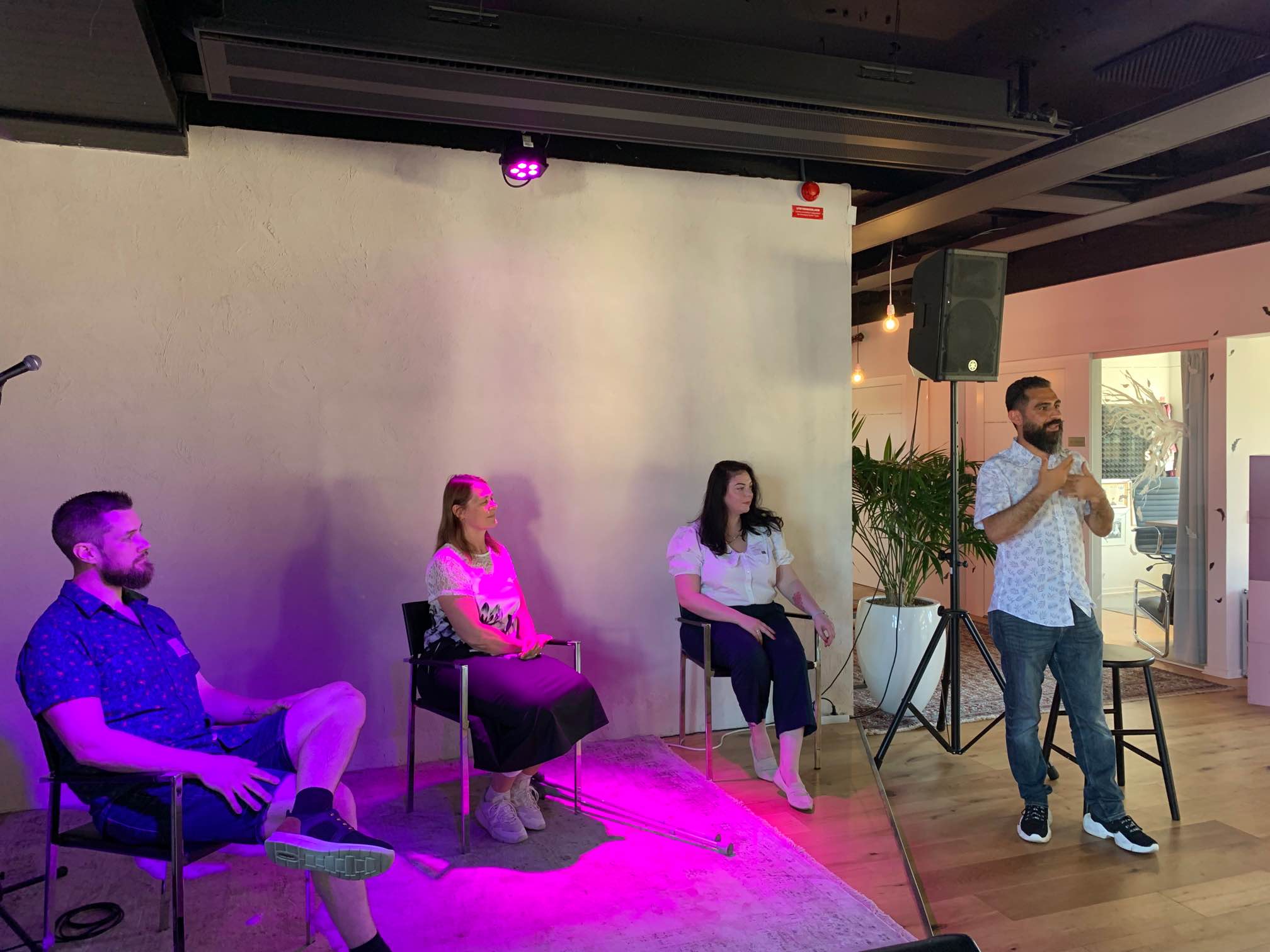
2) What didn't go so well this year?
I finally burned out
When I accepted my promotion to Head of Software Engineering, one of my colleagues warned me to be careful not to burn out. I should have listened to him…
I've always cared a lot about what I do and I've always done a lot of things. This has continuously pushed me to the edge of my limits but this time I didn't have a natural release and I didn't prioritize rest and recovery, instead I tried to squeeze every last minute out of my days.
I worked as a manager of twelve engineers, I cared for two young boys, I courted my wife, I coached at a local gym, I studied five different fields, I ran a side-business, I coded on an open-source project, I organized meetups, I wrote a lot, I practiced shooting sports, I trained for a powerlifting competition, I worked on my investments skills, I rolled Brazilian jiu-jitsu.
And I kept thinking there were so many other things I should be doing.
I couldn't possibly keep that up, so I shed everything except the most important — my family. I was even put on sick leave so that I could completely put work on hold for a while. That gave me the respite I needed to take a step back and reevaluate my life and expectations.
These past months of recovery have been enlightening and, even if there's more spiritual toil to be done, I'm grateful to be able to already be back working 100%.
I didn't get more fit
Despite training hard and diligently, I kept getting interrupted in my lifting. I'd go at it for 6–8 weeks, building momentum, only to have something interrupt it for some weeks, resetting any progress I'd built.
At least I didn't regress but I also am nowhere near as fit as I wanted to be by now.
I never completed my certification
I studied for the GCP Professional Cloud Architect certification and I'm pretty sure I can achieve it now. But I didn't, I postponed, and thus failed this goal.
I didn't release v1.0 of nogfx
I kept working on the nogfx MUD client but didn't manage to complete a v1.0 release yet. Most of my time was spent restructuring how it works with input/output, so as to lay the foundation for a user trigger system, and at least I'm satisfied with how I architectured that.
I also broke out parts of the client into another separate package, which I'll be open sourcing in the future.
I only wrote four articles
Setting out to write one article for Seastone.io per month, I ended up with only a third of that. Invisible to anyone but me, however, I also manage to start twenty-one more articles, still only incomplete drafts, of which I could probably have finished and published at least half.
I processed too few books
Reading a book is only one part of my studying process. The subsequent part is to process the book — go through my highlights, summarize what I've learned, and write notes for my main take-aways.
While I read 67 books, I only managed to process 15 of them.
3) What did I learn?
I dove head-first into machine learning
During a two-week sprint at work, I got to dedicate at least part of that to gain and understanding of and implement machine learning. That doesn't sound like a lot of time but I've spent years applying and interpreting statistics, which turned out to be an amazing foundation for tackling machine learning.
Of course, I don't claim any sort of expertise from this stint but I understand ML a lot better now and I realized it's something I'd love to work more with.
I improved my mental models for finance
Plowing through Rich Dad, Poor Dad, The Richest Man in Babylon, and The Psychology of Money, made me view the world slightly different, in terms of building wealth and growing rich.
This, in turn, helped me tweak my framework for handling personal finances, which has already led to a more rapid growth.
I learned how to produce, publish, and market
I started the year by reading Write a Must-Read, Write Useful Books, and Blueprint for a Nonfiction Book. They taught a strategy of developing and publish a book pretty much like you would a SaaS startup. Developing a market, building a following, and testing continuously, so that publishing is just a formal process of hitting a button.
I ended the year by reading Stop Asking Questions, Podcast Launch (don't bother), and Podcast Marketing. After these I feel fully equipped to start my own podcast and psyched to do so!
Of course, reading books is just a start and a useless one if you fail to apply what you learn. More on that later.
I acquired new tools
During 2023 I added six new tools to my toolbox:
- Anki is a tool to learn facts, through spaced repetition and active recall. I initially bit off more than I could comfortably chew by trying to learn all flags, capitals, and countries of the world but, once I'm through that, I'm looking forward to using Anki for many other areas.
- Readwise is basically an interface on top of my Kindle highlights and notes, making them actually useful and evergreen. I use it to both process the books I've read and remind me of books I've read in the past.
- Mozilla Relay lets me sign up to services without giving out my email address. Their handy Chrome extension makes it easy to generate a new proxy email for each new service I sign up to.
- One sec prevents me from mindlessly scrolling through social media (most of the time).
- Dex helps me keep in touch with all the people I want in my life, which I'm useless at on my own.
- Kaggle / Colab are environments and communities for data processing in general and machine learning/artificial intelligence in particular.
4) What am I working toward?
I'm trying something new this year! I'll explain why but I thought this succinct quote hits the nail on its head:
People expect too much of one year and too little of ten.
— George Bernard Shaw
… except, I feel the same for one year versus one month. Having set annual goals for myself during more than a decade, I've come to realize the futility in trying to guess at a good target to aim for, twelve months into the future.
Either my goals are way too ambitious and I get discouraged from even trying, sometimes they're too easy and I complete them in March, but most often I stop caring about them because they cease being relevant.
Therefore, I'm discontinuing the annual goals and replacing them with intentions, which will serve me more as visions for how I'd like to end 2024. I then break those down into 1–6 months long objectives.
Further, I am borrowing a page from three people I admire: Cal Newport with his four buckets, Stephen Covey with his four domains, and Brett McKay with his five areas.
For myself, I divide my life in seven orthogonal parts: Physical, Mental, Spiritual, Familial, Professional, Financial, and Social. Each part gets an intention and each intention a sequence of objectives.
Physical
Intention: Form healthy habits and identify as an active person, so that I can have a positive trajectory on autopilot.
Objective #1 (week 1–10): Create a strength training program and fallback activities so that I can do something every day.
Mental
Intention: Be deliberate with my studying and structure my learning process better.
Objective #1 (week 1–6) : Formalize book processing and use it to work through 2023's reading topics.
Financial
Intention: Build a buffer to break out of the salary cycle and create a generous margin for emergencies.
Objective #1 (week 1–9): Shrink spendings so as to also budget for day 26–31 the following month.
Others
I have plans also for the Spiritual, Familial, Professional, and Social parts but three big objectives are enough already to start the year with.
Happy new 2024!
All in all, it's been another worthwhile year. Not despite my setbacks and difficulties but because of them; smooth sailing never made a sailor and all that.
This coming year holds a lot of promise and I couldn't be more excited to get started. Professionally, personally, and by any other aspect, 2024 will be awesome.
Curious how I get on with my objectives this year? Subscribe now and I'll keep you updated!